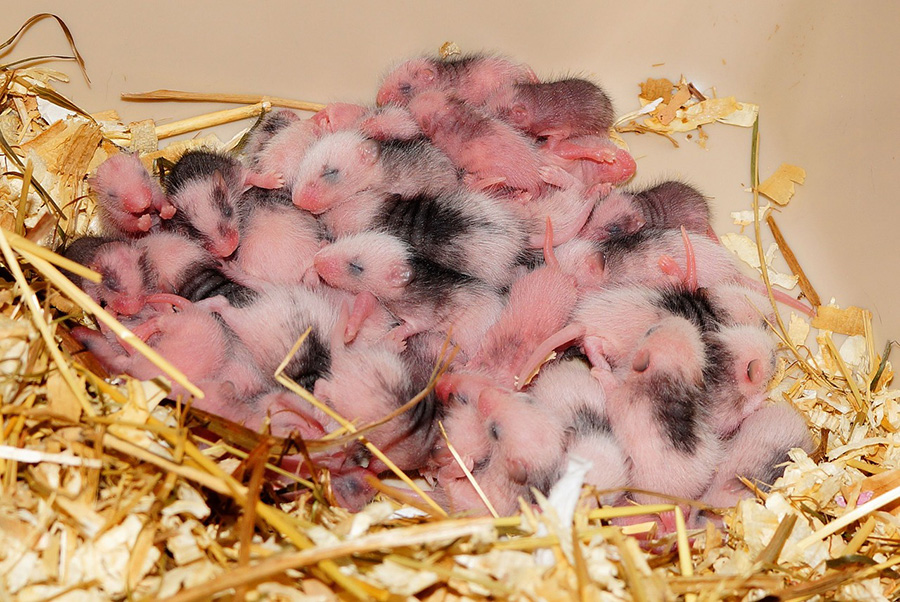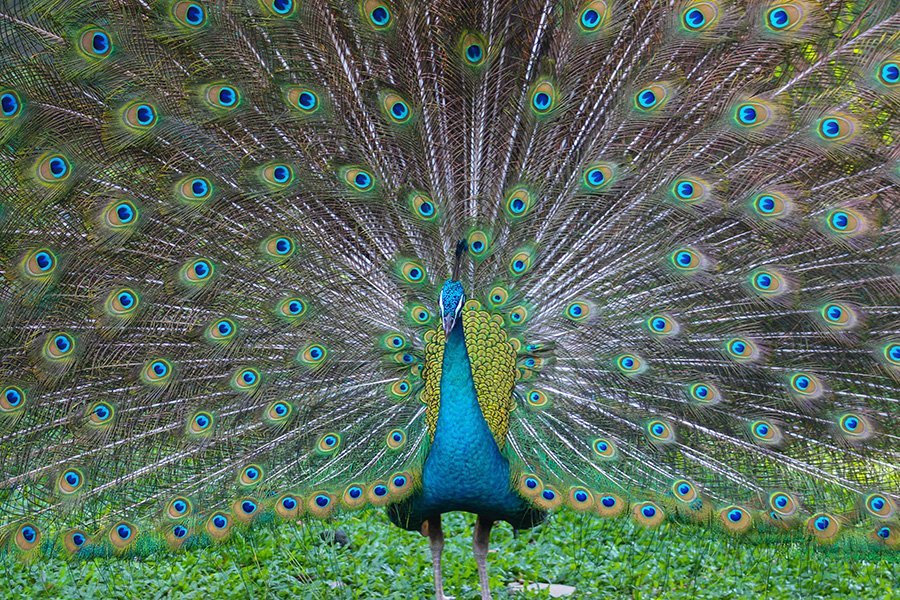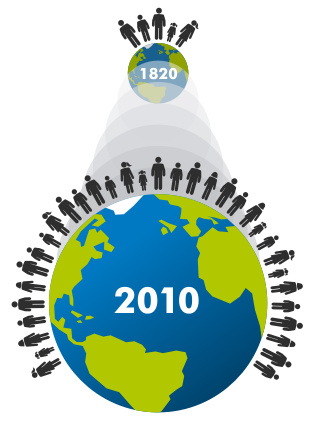The largest Petri dish ever
 "Growth" isn't a human phenomenon. All species, if given the option, will expand their presence as long as they don't hit limits. If you set up a culture of bacteria in a petri dish, the bacteria will keep multiplying until the petri dish is full or no more nutrients are available. If there is a large barn full of wheat a family of mice gets access to, it won't take long until the number of mice has grown exponentially based on the seemingly unlimited food supply. In nature, ecosystems are typically in balance, limiting growth options for individual species
"Growth" isn't a human phenomenon. All species, if given the option, will expand their presence as long as they don't hit limits. If you set up a culture of bacteria in a petri dish, the bacteria will keep multiplying until the petri dish is full or no more nutrients are available. If there is a large barn full of wheat a family of mice gets access to, it won't take long until the number of mice has grown exponentially based on the seemingly unlimited food supply. In nature, ecosystems are typically in balance, limiting growth options for individual species
Others, like bacteria or insects with short life spans, see high fluctuations in annual populations. An example are locusts, still seen as dangerous pests to harvests in many places. There are years with almost none, and others where they leave hardly anything behind on the fields they raid.
The biggest fluctuations always exist when living conditions change or unexpected resources become available - such as the barn to our family of mice - which temporarily remove all limits on expansion. Our human story of the past 250 years isn't so much different from that example, because with finding the treasure trove of 500 million years of stored land productivity in the form of fossil fuels, we came across our own "endless" barn of (indirect) food supply.
Comparative fitness - the signs of success

While mice and locusts benefit from a good year by growing their populations, other animals have more advanced ways of showing success in appropriating enough resources. No matter if we are talking about the impressive feathers of a peacock or the mighty mane of the alpha male in a pride of lions, strength, health and demonstrations thereof are clear signals of power and attractiveness. This isn't different with humans. A good job, a nice house, that new car, or expensive branded clothes are visible signs of our ability to succeed in today's world, and they signal to others that we are worthwhile hanging out with.
What is most important in that context is not so much absolute wealth, but how we comparatively do to others within our vicinity. If all your neighbors ride bicycles while you can afford a 10-year old compact car, you are visibly better off and will obviously have many friends and enviers. However, if you own that same car in a street where everyone drives a brand-new SUV, that isn't so much the case.
A curse and a chance

This is the problem today, but equally a chance for the future. Our treasure trove of energy has given us the ability to move our status comparison game to 70" TV sets and fancier and longer holidays, and the most fashionable gadgets to show off. As long as enough resources (and enough credit) is available, this rat race continues almost infinitely. So far for the bad news.
The good news however: once reality kicks in and forces us to downgrade our lifestyle - most of us have a long way to go before our life essentials like food, shelter, health and others are truly negatively affected. Just to give you an idea - if all 7.5 billion humans lived with an average per-capita GDP of the year 1800, we would only use 1/10 of today's energy and resources. If all humans wanted the lifestyle of the current top earning billion humans, we would need many earths to cover their desires.
With this in mind, we don't need to be too desperate, even if we are no longer going to be the richest humans in history. We will still be able to maintain everything that we consider relevant for a good life, unless we make silly choices on the way down.

